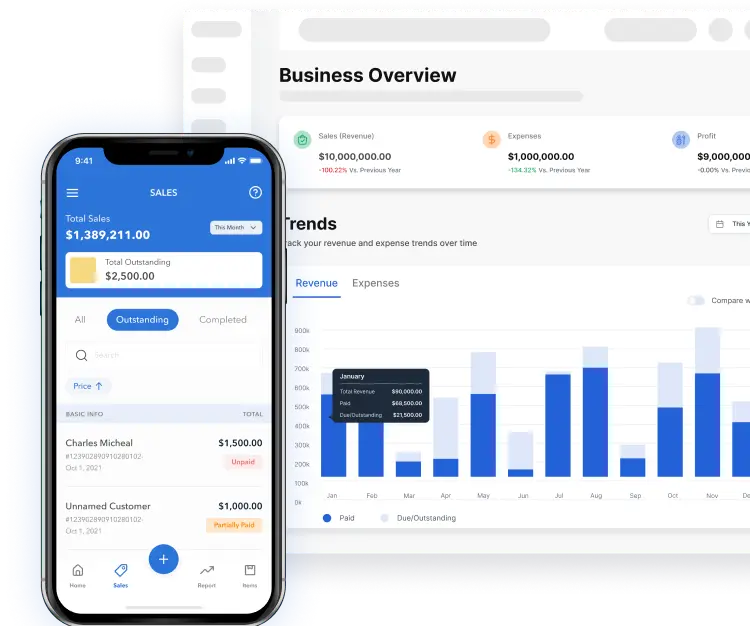For many newer small businesses, managing cash flow is often a balancing act. The primary concern is typically making sure there’s enough cash to cover bills and operating expenses. However, as a business grows, it’s common for cash reserves to build up over time. While this is a positive sign of success, it leads to a significant question: how much cash should a business keep on hand?
Answering this question involves more than simply leaving extra money in the bank. In this blog, we’ll explore both the benefits and potential downsides of maintaining a large cash balance, and provide some insights to help you decide how much cash your business should hold.
The Upside: Liquidity is Good for Your Business

Having extra cash on hand is undeniably beneficial, especially when it comes to maintaining liquidity. Here are a few reasons why holding onto cash can be an advantage for your business:
1. Safety Net for Unforeseen Challenges
Business owners often face unexpected financial challenges, such as sudden dips in revenue or unplanned expenses. Holding extra cash ensures your company has a cushion to weather these rough patches without scrambling for financing or dipping into credit lines.
Maintaining liquidity is particularly important for businesses that experience seasonal fluctuations or operate in industries where revenue can be unpredictable. When you have a reserve of cash, it gives you peace of mind knowing your business can cover essential expenses, even during slow periods.
2. Improved Financial Statements
Cash reserves improve your balance sheet and overall financial health. With stronger financial statements, it becomes easier to secure lower-cost financing, whether you’re applying for a loan or negotiating better payment terms with vendors. Lenders and investors are more likely to view your business as stable and less risky when they see substantial cash reserves.
3. Opportunity for Growth
Another key benefit of holding onto cash is the ability to seize opportunities when they arise. Whether it’s acquiring a competitor, expanding into a new market, or purchasing discounted inventory, having cash on hand allows you to act quickly and take advantage of strategic opportunities. Businesses with a healthy cash reserve can grow more effectively by investing in these types of initiatives without the need for external financing.
The Downside: Can Your Business Have Too Much Cash?
While having cash reserves is certainly better than struggling with cash flow issues, it is possible for a business to hold onto too much cash. Here are some reasons why excess cash could be a problem:
1. Risk of Fraud or Theft
One of the risks of maintaining a large cash balance is that it can make your business a target for theft or fraud. Dishonest employees, external hackers, or even government auditors may view a large cash reserve as an opportunity. Keeping excess cash without proper oversight can make it harder to track transactions and detect irregularities.
To mitigate this risk, businesses should implement strong internal controls and regularly monitor their financial accounts, ensuring that cash reserves are safe and accounted for.
2. Difficulty Managing Cash Flow
Even without the risk of fraud, managing a large cash balance can create operational headaches. It becomes easy to lose track of small transactions or overlook minor expenses when there’s a substantial amount of cash sitting in your account. This can lead to inefficient cash management, where money is flowing out of the business without being properly accounted for.
3. Missed Investment Opportunities
Perhaps the most significant downside to keeping too much cash on hand is the opportunity cost. Cash sitting in a business checking account earns very little interest. In fact, it’s likely that your cash reserves are losing value when considering inflation.
Instead of letting excess cash sit idle, it’s often smarter to invest it back into the business or place it in interest-earning accounts such as money market funds or certificates of deposit (CDs). Alternatively, excess cash can be used to pay down debt or make strategic purchases that could lead to cost savings in the long run.
When cash isn’t being put to work, you miss out on potential growth and the opportunity to improve your company’s financial position over time.
So, How Much Cash Should Your Business Keep?

Deciding how much cash your business should keep on hand depends on several factors, including the nature of your industry, your operating costs, and your long-term goals. However, there are a few general guidelines that can help you determine an appropriate cash reserve.
1. Cover at Least a Year’s Worth of Expenses
As a rule of thumb, businesses should aim to keep at least one year’s worth of operating expenses in reserve. This includes covering fixed costs like rent, payroll, utilities, and inventory. Having this amount of cash ensures that even if your business hits a rough patch or faces unexpected expenses, you’ll have the financial stability to continue operating without needing to secure immediate financing.
2. Add a Buffer for Emergencies
In addition to a year’s worth of expenses, it’s wise to maintain an emergency cash reserve. This could be anywhere from 10% to 30% of your annual expenses, depending on the volatility of your industry. This buffer can help you manage unforeseen situations such as equipment failure, market downturns, or sudden increases in supply costs.
3. Look for Investment Opportunities
Once you’ve established your emergency reserve, excess cash should be invested to help grow your business. For example, investing in growth initiatives such as marketing, expanding product lines, or upgrading technology can provide a better return than letting the money sit in a low-interest account.
Another smart option is to use excess cash to pay off any high-interest debt, which will reduce your interest payments over time and improve your bottom line.
What to Do with Extra Cash

If your business has accumulated more cash than it needs to cover operating expenses and emergencies, there are several strategies you can use to put that money to work. Here are a few ideas:
1. Invest in Money Market Accounts or CDs
Money market accounts and CDs offer higher interest rates than traditional checking accounts while still allowing relatively easy access to funds. These options are ideal for businesses that want to earn some interest on their excess cash without taking on significant risk.
2. Pay Off Debt
Using excess cash to pay off high-interest loans or credit lines is a smart financial move. By reducing your debt load, you’ll lower your interest expenses and improve your overall financial health. Plus, paying down debt can free up more cash for future investments.
3. Consider Business Acquisitions
If your business is in a position to expand, consider using excess cash to acquire another company or merge with a competitor. Acquisitions can help you grow market share, diversify your revenue streams, and gain access to new customers.
Conclusion
Ultimately, there’s no one-size-fits-all answer to how much cash a business should keep on hand. While having strong cash reserves is important for stability and growth, holding onto too much cash can lead to missed investment opportunities and lower returns.
The key is to strike a balance—ensure that you have enough liquidity to cover your operating expenses and handle emergencies, while also looking for smart ways to invest your excess cash and grow your business over time.
If you’re looking to simplify cash management and optimize your business finances, consider using Vencru’s accounting tools. Vencru offers easy-to-use features that help small businesses manage their cash flow, track expenses, and make smarter financial decisions. Start today and see how Vencru can help your business grow!
Related Content






